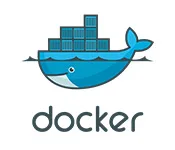In order to speed up my integration tests execution, I’d like to have a custom localstack pro container with some aws resources already created.
Basically I start a docker compose file with the below configuration, run some awslocal and tflocal commands, then stop the container and run docker commit, but when I run the saved container the changes I made are not there.
I was able to use this same strategy for the same purpose with postgres(start a postgres container, run some migrations with liquibase, run docker commit), but in that case I had to use the PGDATA variable to have the changes persisted when docker commit runs.
Does localstack has some particularity for this use case?
Thanks
version: "3.8"
services:
localstack:
container_name: "${LOCALSTACK_DOCKER_NAME:-localstack-main}"
image: localstack/localstack-pro:3.8
ports:
# Now only required if you need to access LocalStack from the host
- "127.0.0.1:4566:4566"
# Now only required if you need to access LocalStack from the host
- "127.0.0.1:4510-4559:4510-4559"
environment:
- LOCALSTACK_AUTH_TOKEN=$LOCALSTACK_AUTH_TOKEN
- DEBUG=1
- PERSISTENCE=1
- SNAPSHOT_SAVE_STRATEGY=ON_REQUEST
- LAMBDA_RUNTIME_ENVIRONMENT_TIMEOUT=300
- LAMBDA_DOCKER_NETWORK=digital-localstack_ls
volumes:
- "${LOCALSTACK_VOLUME_DIR:-./localstack-volume}:/var/lib/localstack"
- "/var/run/docker.sock:/var/run/docker.sock"
networks:
ls:
# Set the container IP address in the 10.0.2.0/24 subnet
ipv4_address: 10.0.2.20

 Question posted in
Question posted in 

2
Answers
You have volume mounted. As per docker documentation commit doesn’t contain changes in volume or bind mount. So, Just remove volumes and use COPY to copy data of
${LOCALSTACK_VOLUME_DIR:-./localstack-volume}LocalStack person here. We do have features specific to your use case. We have a bunch of persistence tools that could potentially help here including saving and loading state or cloud pods, for instance.
My colleague wrote a blog post about persistence and integration tests that seems similar to what you are looking for (though the example is specific to using GitHub Actions).